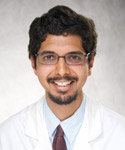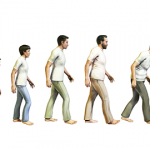To What End?
So what if we do all this? What if rheumatology becomes more attentive to ageism and power disparities? What happens when we choose our words with care and prioritize the dignity of our older patients?
One outcome is better communication. When patients feel heard and respected, they are more likely to be honest, engaged and proactive. This leads to richer clinical data, potentially better adherence to treatment and, ideally, improved health outcomes. Words, after all, build the bridge between knowledge and trust.
This communication builds deeper connections. By being mindful of ageism, we show our patients that they matter—not just as bodies to be diagnosed, but as people to be understood.
A therapeutic element exists in all this connection. We reinforce that their lives (and our lives) have value, regardless of age, and that those voices are worth listening to. Most importantly, deep and lasting connections build purpose, and that enables both clinicians and patients to thrive.
Ultimately, this empathic approach makes us better clinicians. It sharpens our ability to take in perspectives, thereby deepening our insights and aligning our practice with our values. While a lot has been done on administrative levels to promote the use of standardized surveys and questionnaires, this approach of deep listening and connection may be more meaningful and purpose driven.
Conclusion
So what happened with the medical student?
After the patient left, we sat down and began an open-ended conversation. Almost immediately, the medical student realized the patient had not taken his words very well and disclosed to me that he realized that misstep “as soon as those words came out.” Surprisingly, I talked very little since our student was rightfully doing the lion’s work of self-
reflection. I was impressed that he didn’t feel a sense of shame, but rather a sense of gratitude that the patient had pointed this out. Perhaps that is one of the privileges of being a student, and one mindset we should all try to cultivate and retain as we grow older.
As for the patient, he came back six months later. He saw me from across the waiting room, grinned, and said, “Doc, you’re looking older and wiser.”
I laughed. This time, nothing was mentioned about the alternative. I simply said, “Thanks. I’m having fun.”
 Bharat Kumar, MD, MME, FACP, FAAAAI, RhMSUS, is the director of the rheumatology fellowship training program at the University of Iowa, Iowa City, and the physician editor of The Rheumatologist. Follow him on X (formerly Twitter) @BharatKumarMD.
Bharat Kumar, MD, MME, FACP, FAAAAI, RhMSUS, is the director of the rheumatology fellowship training program at the University of Iowa, Iowa City, and the physician editor of The Rheumatologist. Follow him on X (formerly Twitter) @BharatKumarMD.


